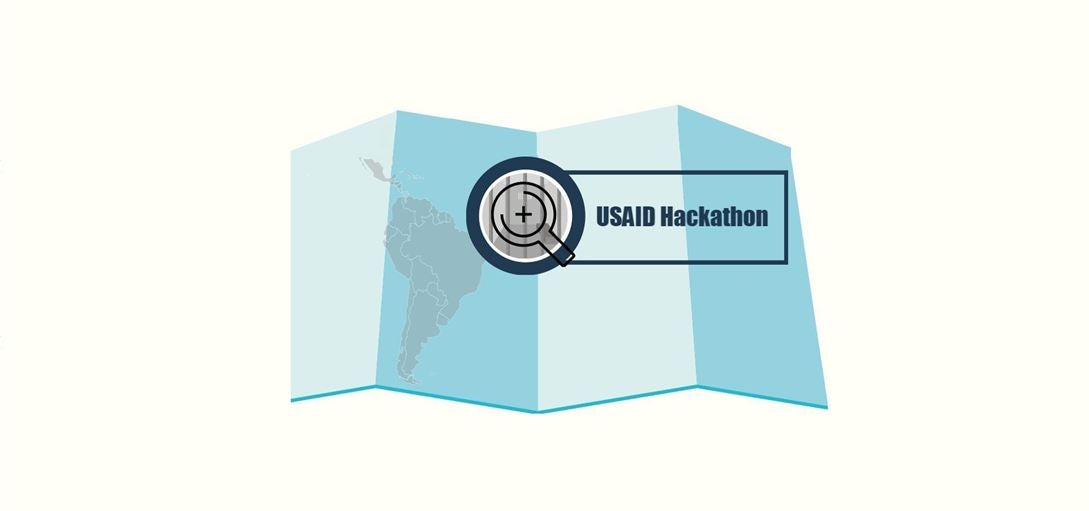Crime and violence are two ongoing problems in Latin America and the Caribbean that affect millions of people. Central America, in particular Honduras, El Salvador, and Guatemala, have the highest murder rates and the countries are considered the most crime-ridden and violent region in the world.
Since 2008, Congress has appropriated an estimated $803.6 million for Central America through development programs such as, The Mérida Initiative and Central America Regional Security Initiative (CARSI). The Administration has requested an additional $130 million for CARSI in 2015. For the past twenty years, the United States Agency for International Development (USAID) has worked on these programs as well as others to fight against the regional challenges. USAID is now launching a new initiative to use open data to design new approaches to think about this problem.
The international community is monitoring the uptick of crime and insurgency in Mexico and Central America closely, generating an emerging opportunity to conduct analysis and gain new insight. On April 30 and May 1 2015, USAID will host a first-of-its-kind Open Data Hackathon, focusing on crime and violence in Latin America and the Caribbean.
In this article we’ll explain what this event is about and how you can participate.
What data has been released and in which format?
In October 2014, USAID released a policy on Development Data (ADS 579), which paved the way for USAID and its partners to draw from an increasingly robust, data-rich environment to create these breakthrough insights and solutions in support of our mission well into the future.
As of today, the USAID Open Data Portal features 43 datasets from several sources, such as:
- Featuring a decade of datasets from 15 Latin American countries from the Latin American Public Opinion Project (LAPOP), a survey that covers 28 countries including North, Central and South America.
- A machine-readable version of the Development Experience Clearinghouse with data on project evaluations spanning back to the 1980s;
- USAID’s Economic Analysis and Data Services, and results and foreign assistance data from Dollars to Results and ForeignAssistance.gov;
- Data from the new Agency repository of USAID-funded data, the Development Data Library (DDL), a component of USAID’s first ever open data policy.
Using these datasets and third-party data in February 2015 Open Data Day, the USAID team led a session at the World Bank’s hackathon focusing on crime and insecurity in Mexico and Central America. They were able to capture a snapshot of Mexico and Central America’s violent and influential group’s social networks and communication style, which can be a very valuable source of information. The collaboration hackpad developed at the event gives access to a list of resources on public data and information related to crime in Central America; a map that displayed user interactions and influence patterns; and a crowdsourced list of Spanish language terms commonly used to talk about violence, which others can then use to build queries for social media analysis. In the future, USAID is hoping to get more regional participation to incorporate slang and refine terms to reflect cultural nuance.
What topics will be covered in the USAID hackathon?
The April 30th Hackathon will build on and expand the work started In February 2015, we will conduct an analysis of social media accounts, messages, and online membership to better understand the informal linguistics of violence in the region or to map a network of their interactions. Using data we will develop real-time solutions to an on-going regional challenge.
In this hackathon, the objective will be to think about how open data can serve as a tool help stop crime and violence in its tracks. We are inviting participants to submit questions around the datasets that are important to them. We will ultimately choose up to three topics and underlying projects to tackle the day of the hackathon.
Who can participate in USAID’s hackathon?
The hackathon is open to everybody and you can register here. We are interested in bringing together experts in the field of crime and citizen security for all sectors, developers, journalists and designers. We want your input. We are crowdsourcing more detailed questions around these topics.
Which data do you think is key to understand crime and violence in Latin America? Include your comments below!
Written by the following members of USAID: Alana Marsili, Open Data Specialist; Laura Hughes, Open Data Specialist; Rik Williams, AAAS S&T Policy Fellow; Craig Jolley, Innovation Specialist.



Leave a Reply